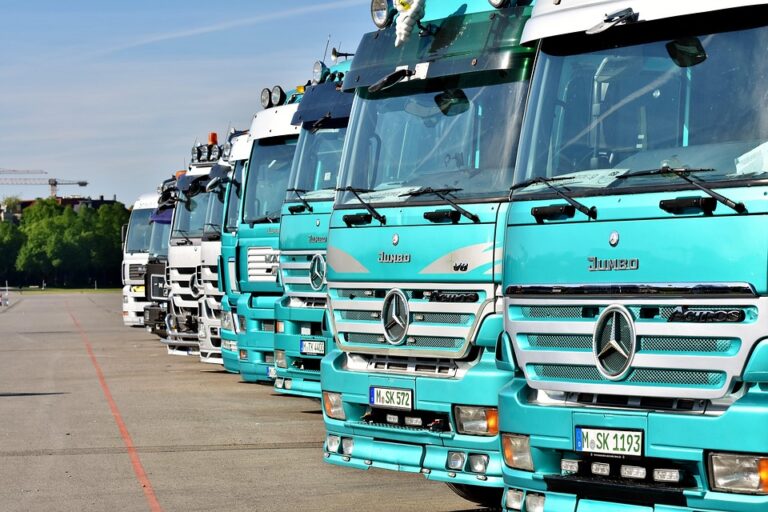Trucking and Sustainability: How Companies are Going Green
In the face of climate change and increasing regulatory pressures, the trucking industry is at a pivotal juncture. Companies are not only re-evaluating their operational strategies but also embracing sustainable practices to meet environmental goals. This article explores how trucking companies are going green, the benefits of these initiatives, and what this means for the future of truck news and the logistics landscape.
The Importance of Sustainability in Trucking
The trucking sector is a major contributor to greenhouse gas emissions, making sustainability a pressing concern. With transport accounting for nearly a quarter of global carbon emissions, industry leaders are recognizing the urgent need to adopt greener alternatives. Making a shift towards sustainability not only helps the environment but also can reduce operational costs and improve public perception.
Regulatory Pressures and Environmental Responsibility
In recent years, governments are tightening regulations aimed at reducing carbon footprints across industries. For instance, the European Union and various U.S. states have set ambitious targets to cut emissions, urging companies to innovate or risk facing penalties. This regulatory landscape has prompted trucking companies to prioritize sustainability in their operational models.
Strategies for Sustainable Trucking
Transition to Electric and Alternative Fuel Trucks
One of the most significant shifts in the trucking industry is the transition from diesel to electric and alternative fuel vehicles (AFVs). Innovations in electric trucks are becoming increasingly viable, with major players like Tesla introducing models designed for long hauls. Alternative fuels, such as biofuels, hydrogen, and compressed natural gas (CNG), are also being explored as cleaner options.
- Electric Trucks: Companies like Volvo and Daimler have made leaps in electric vehicle (EV) technology, offering trucks that have a lower total cost of ownership compared to traditional diesel trucks.
- Alternative Fuels: Biofuels made from plant materials and waste products produce fewer emissions and are increasingly being adopted by fleets.
Fuel Efficiency Improvements
Even if companies are not ready to switch entirely to electric vehicles, many are focusing on improving fuel efficiency through technology and practices. These strategies include:
- Aerodynamic Modifications: Trailers equipped with side skirts and improved designs reduce drag, thereby improving fuel economy.
- Telematics and Data Analytics: Utilizing telematics to monitor driving patterns and vehicle health allows companies to optimize routes and reduce fuel consumption.
Sustainable Logistics Practices
Sustainability in trucking extends beyond the vehicles themselves. Companies are adopting sustainable logistics practices, such as:
- Route Optimization: Advanced software helps planners identify the most efficient routes, reducing travel time and fuel consumption.
- Load Optimization: Maximizing cargo load and minimizing empty miles ensures that trucks are utilized efficiently, ultimately decreasing carbon emissions.
Real-World Examples of Green Initiatives
Several companies lead the way in implementing sustainable practices in their trucking operations:
-
Walmart: The retail giant has set ambitious goals to power its fleet with 100% renewable energy by 2035, incorporating electric trucks and investing in infrastructure.
-
UPS: With its impressive fleet management strategies and investments in alternative fuels, UPS aims to achieve carbon neutrality by 2050.
- Coca-Cola: The beverage giant has committed to various sustainability initiatives, including transitioning a portion of its fleet to electric vehicles, demonstrating a commitment to cleaner supply chains.
Challenges and Future Directions
While the transition to sustainable trucking is promising, several challenges remain:
- Infrastructure Development: A widespread charging infrastructure is crucial for electric trucks to gain traction, especially for long-haul operations.
- Initial Costs: The upfront investment for electric and hybrid vehicles can be high, making the transition difficult for smaller carriers.
- Regulatory Complexity: Navigating the patchwork of regulations can be challenging, as requirements can vary significantly by region.
The Road Ahead: Embracing Innovation
Industry experts believe that embracing technology and innovation is the key to overcoming these challenges. Continued investment in R&D will lead to more efficient vehicles and practices, facilitating the transition to a more sustainable trucking industry.
Conclusion
The strides made toward sustainability in the trucking industry are both exciting and necessary. As regulatory pressures increase and customer expectations shift, it is clear that companies must adapt to stay competitive. By embracing electric vehicles, focusing on fuel efficiency, and implementing sustainable logistics practices, the trucking industry is not only meeting its current challenges but also paving the way for a greener future. For more updates on trucking and sustainability, stay tuned to buzzo.live, where we cover the latest truck news and innovations.
As we continue to witness the evolution of the trucking industry, it is essential to consider sustainability not just a trend but a crucial aspect of future operations. By supporting companies that prioritize green initiatives, we can all contribute to a healthier planet for generations to come.


